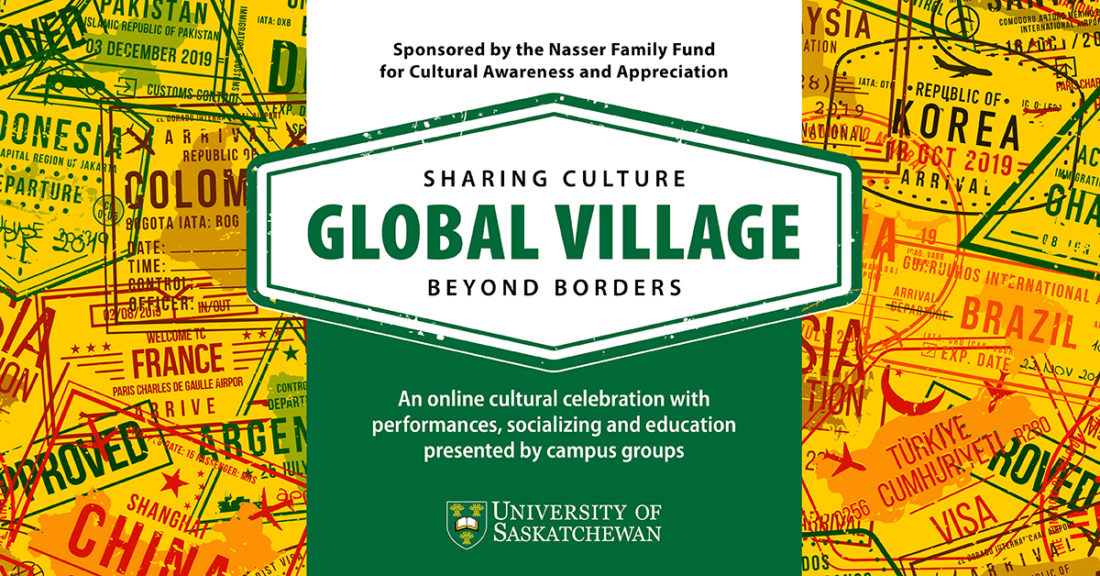
The first event to be officially cancelled because of COVID-19 at the university in 2020 has taken place online this year.
Global Village was scheduled to take place on March 12, 2020. That same day, the International Student and Study Abroad Centre made an announcement that the event was cancelled due to COVID-19.
This year’s Global Village, being online, was quite different from previous years. The event usually features table setups, cultural presentations, food and many attendees mingling in and around booths for the evening.
Lucas Kobashi, a third-year computer science student and the president of the Brazilian Students’ Association, says that although Global Village took place online, the focus was still on bringing a strong sense of community.
“I want people to know that we are all going through the same thing, that we are all together in this no matter where in the world, and that things will be alright,” Kobashi said.
Instead of being a single-day event as in the past, this year’s Global Village was a week-long virtual event from March 15 to 20. The various featured student associations, the university’s Building Bridges program and AIESEC Saskatoon all had specific days for their presentations.
Jordan Hartshorn, a staff member at the university International Student and Study Abroad Centre, says the online environment is allowing for a lot more accessibility. Using the Webex platform through the University of Saskatchewan also enables them to ensure that attendees in the events are verified students.
“We’re not going to kid ourselves into thinking that we can recreate the energy of an 800-person event with food, performances and just all around exciting energy in the space,” Hartshorn said. “I wish I knew how to recreate that in a digital environment but we can’t, so we’re trying to find out ways to best do that for this year.”
Planning for this year’s Global Village has been quite different from last year’s, Kobashi says. Where past Global Village events had established guidelines to follow, this year planning involved “starting from scratch.”
Hartshorn says that planning for in-person Global Villages would often start in September, but this year it was “scaled back” because each student group was planning and hosting their own event. ISSAC helped with central advertising for the event.
“We always knew we were going into the digital environment so it was just a matter of deciding what it would look like,” Hartshorn said. “Our office played the role of bringing everyone together.”
In previous years, Global Village involved over twenty different student associations. This year, there were only ten presenters and less attendees than usual. However, Kobashi says that “hard times foster community.”
Hartshorn thinks that a virtual Global Village allows the event to become “truly global,” and hopes that the student associations involved get more exposure.
“They put a lot of valuable work in throughout the year. They don’t just exist to be a part of Global Village,” Hartshorn said.
“For a lot of students, I just really hope they come away knowing and understanding the diverse, unique and cosmopolitan character of our campus.”
—
Fiza Baloch | Staff Writer